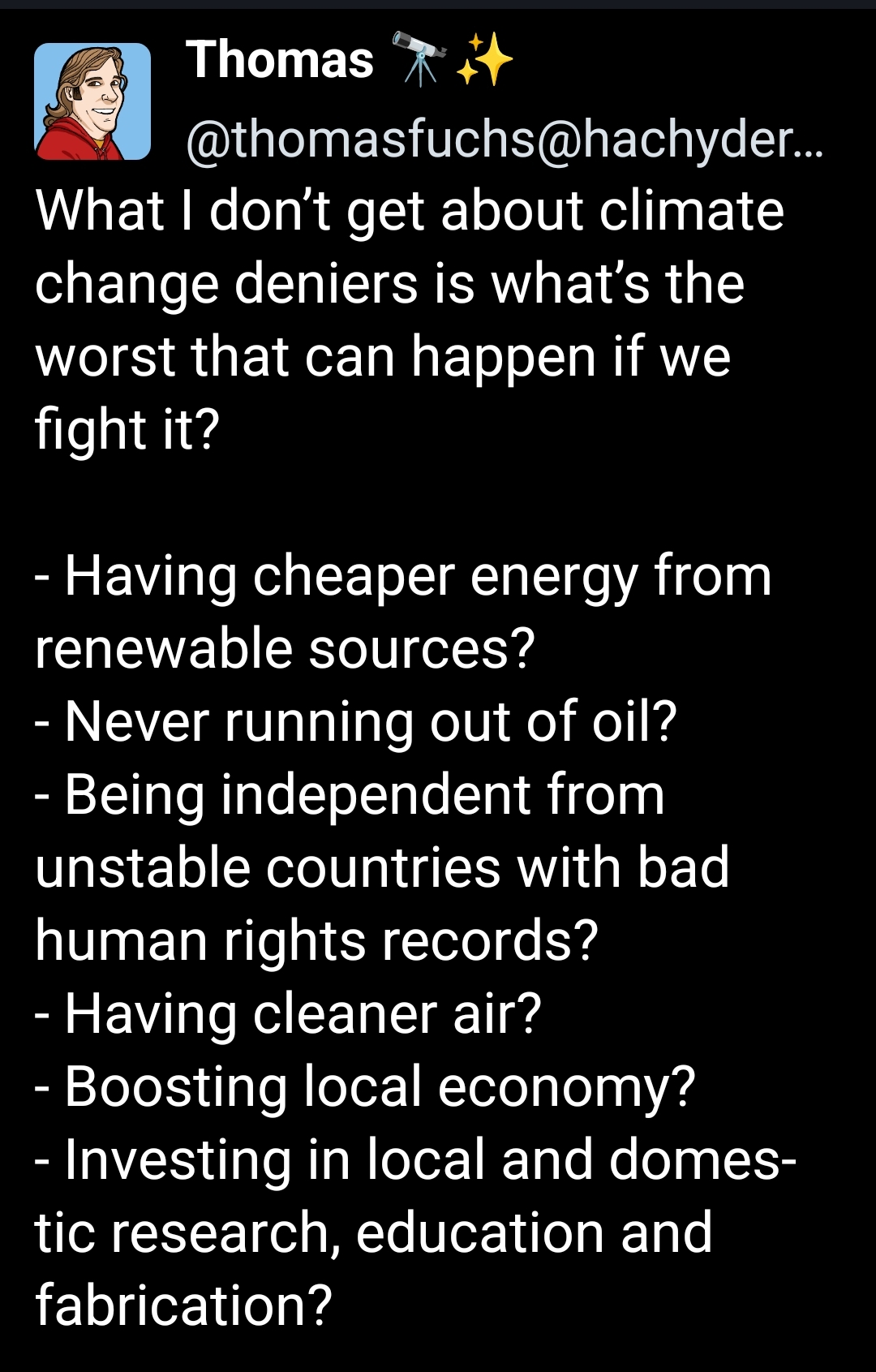this post was submitted on 18 Aug 2024
1524 points (98.5% liked)
People Twitter
5383 readers
1552 users here now
People tweeting stuff. We allow tweets from anyone.
RULES:
- Mark NSFW content.
- No doxxing people.
- Must be a tweet or similar
- No bullying or international politcs
- Be excellent to each other.
- Provide an archived link to the tweet (or similar) being shown if it's a major figure or a politician.
founded 2 years ago
MODERATORS
you are viewing a single comment's thread
view the rest of the comments
view the rest of the comments

Right on. No matter how well meaning people may be, if we misunderstand the issues then we're unlikely to craft working solutions.
The only comment I would add to yours is that local economies are interconnected with the global marketplace. If the price of oil goes up overseas, domestic producers will increase their prices too. Additionally, the cost of energy is baked into the price of imported goods. Even if a country were completely energy independent, a spike in the price of energy on the global markets would increase price of just about everything at home.
And, importantly, the potential outcomes of middle-east tensions leading to oil prices going up is something people are used to. It seems likely that something like solar panels would be less prone to disruption from overseas crises. OTOH, maybe tension in the South China sea means that it's impossible to get replacement solar panels. It's trading a set of drawbacks that people know how to deal with, for some that maybe they don't. Change is scary.
I'd love to have a home I could mount solar panels on. For me, the potential drawbacks are tiny compared to the potential benefits. But, not everyone feels the same way, and it isn't just because they can't see the obvious.